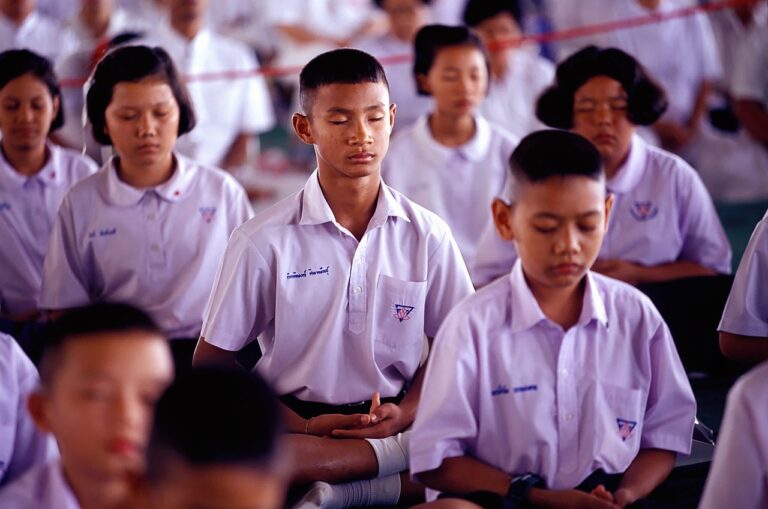
New Delhi: The Foreign Ministers of Australia, India and Japan and the Secretary of State of the United States of America today reaffirmed the Quad’s “steadfast commitment to supporting a free and open Indo-Pacific, which is inclusive and resilient”.
In a meeting here, they also condemned terrorism and violent extremism, as well as North Korea’s “destabilizing” ballistic missile launches, and also discussed their responses to the conflict in Ukraine and concurred that the use or threat of use of nuclear weapons was “inadmissible”. They expressed their “deep” concern at the deteriorating situation in Myanmar and suggested the resolution of issues through dialogue, unhindered humanitarian access, and transition to an inclusive, federal democratic system in Myanmar. “Towards this, we reaffirm our consistent support to the ASEAN-led efforts, including the work of the ASEAN Chair and Office of the Special Envoy, and call for the full implementation of ASEAN’s Five-Point Consensus. We also encourage the international community to work together in a pragmatic and constructive way towards resolving the crisis in Myanmar,” they said.
The Quad foreign ministers announced the establishment of the Quad Working Group on Counterterrorism, which will explore cooperation amongst the Quad, and with Indo-Pacific partners, to counter new and emerging forms of terrorism, radicalization to violence, and violent extremism. “We look forward to its first meeting in the United States in 2023 to continue our discussions on this global issue,” they stated.
They also said that they looked forward to continuing these discussions at the Quad Maritime Security Working Group meeting hosted by the United States in Washington, D.C., in March 2023.
“In this context, we welcome the progress made under the Indo-Pacific Partnership for Maritime Domain Awareness (IPMDA),” they stated.
With specific reference to the Indo-Pacific, the Quad grouping “strongly” supported the principles of freedom, rule of law, sovereignty and territorial integrity, peaceful settlement of disputes without resorting to threat or use of force and freedom of navigation and overflight, and oppose any unilateral attempt to change the status quo, “all of which are essential to the peace, stability and prosperity of the Indo-Pacific region and beyond”.
With an obvious reference to China but without naming it, the Quad ministers’ joint statement reiterated the importance of adherence to international law, as reflected in the UN Convention on the Law of the Sea (UNCLOS), to meet challenges to the maritime rules-based order, including in the South and East China Seas.
“We strongly oppose any unilateral actions that seek to change the status quo or increase tensions in the area. We express serious concern at the militarization of disputed features, the dangerous use of coast guard vessels and maritime militia, and efforts to disrupt other countries’ offshore resource exploitation activities,” they stated. They added: “We recognize that peace and security in the maritime domain underpins the development and prosperity of the Indo-Pacific, and reiterate the importance of respect for sovereignty, consistent with international law.”
The Quad foreign ministers concurred that the rules-based international order is anchored in international law, including the UN Charter, and the principles of sovereignty, political independence, and territorial integrity of all states. “We are committed to cooperate to address attempts to unilaterally subvert the UN and international system, in consultation with our partners and through multilateral and international platforms,” they stated.
The Quad nations further stressed that they will act as a force for regional and global good, and will be guided by the priorities of the Indo-Pacific region “through its positive and constructive” agenda. They said they were “determined” to deepen engagement with regional partners, including through information-sharing, capacity-building and technical assistance, to strengthen maritime domain awareness; to counter illegal, unreported and unregulated fishing; to enhance their capability to protect and develop offshore resources, consistent with UNCLOS; to ensure freedom of navigation and overflight; and to promote the safety and security of sea lines of communication.
“Through the Quad, we seek to support the region through practical cooperation on contemporary challenges such as health security, climate change and the clean energy transition, critical and emerging technologies, infrastructure and connectivity, addressing the debt crisis through sustainable, transparent and fair lending and financing practices, space cooperation, cyber-security, humanitarian assistance and disaster relief, maritime security and counterterrorism,” they said.
They reiterated their commitment to support Pacific Island countries in line with the objectives of the Pacific Islands Forum’s 2050 Strategy for the Blue Pacific Continent, guided by Pacific priorities of climate change, resilient infrastructure, and maritime security. “We support regional institutions in the Pacific and are also further strengthening our cooperation with the Indian Ocean Rim Association (IORA), to address the region’s most pressing and important challenges. We welcome India’s leadership in finalizing the IORA Outlook on the Indo-Pacific,” they said.
The Quad foreign ministers expressed their happiness over the progress made under the Quad Humanitarian Assistance and Disaster Relief Partnership (HADR) for the Indo-Pacific, since their last meeting in September 2022, when they signed onto the Guidelines for the Partnership. “We welcome the outcomes of the first HADR tabletop exercise and biannual meeting held in India in December 2022. We look forward to the finalization of the Partnership’s Standard Operating Procedures which would enable an efficacious and coordinated response mechanism,” the statement said.
Expressing their “active and constructive” engagement in the Inter-Governmental Negotiations (IGN) process on Security Council Reforms with an overall objective of making the UN Security Council more effective, representative, and credible, the Quad ministers reiterated their “unwavering support for the UN Charter, including its three pillars, and our steadfast commitment” to strengthening the UN and international system through a comprehensive reform agenda, including through expansion in permanent and non-permanent seats of the UN Security Council.
“We will support meritorious and independent candidates for elections in the UN and in international forums to maintain the integrity and impartiality of the international system,” they stated.
– global bihari bureau





